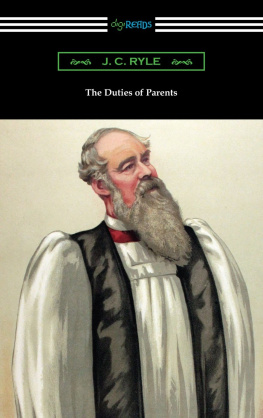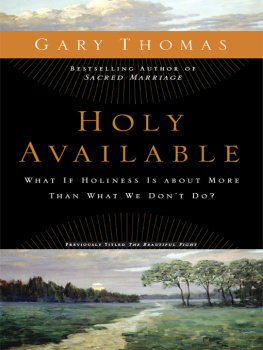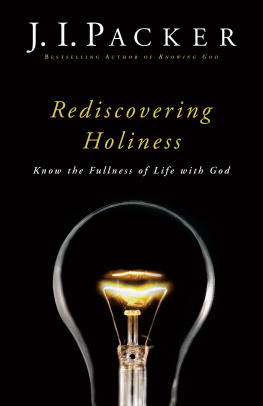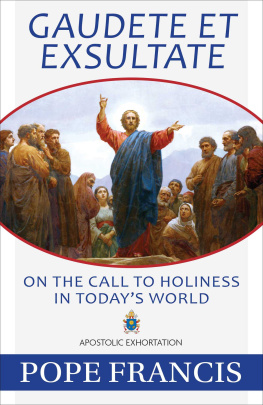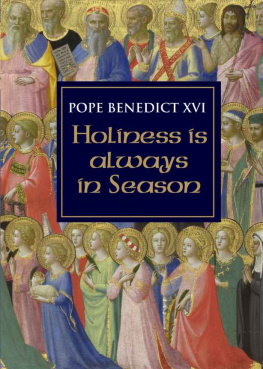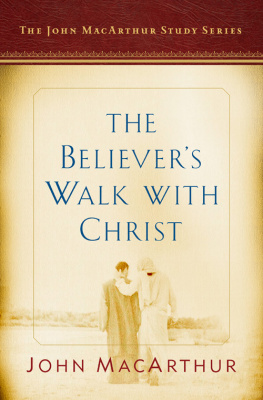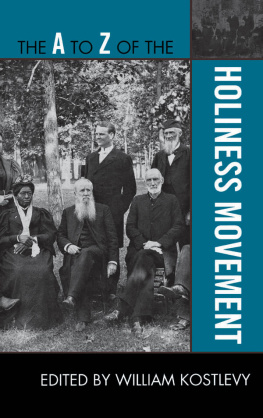Table of Contents
Landmarks
John Piper once wrote that books do not change people, but paragraphs do. This pithy statement gets close to the idea at the heart of the Crossway Short Classics series: some of the greatest and most powerful Christian messages are also some of the shortest and most accessible. The broad stream of confessional Christianity contains an astonishing wealth of timeless sermons, essays, lectures, and other short pieces of writing. These pieces have challenged, inspired, and borne fruit in the lives of millions of believers across church history and around the globe.
The Crossway Short Classics series seeks to serve two purposes. First, it aims to beautifully preserve these short historic pieces of writing through new high-quality physical editions. Second, it aims to transmit them to a new generation of readers, especially readers who may not be inclined or able to access a larger volume. Short-form content is especially valuable today, as the challenge of focusing in a distracting, constantly moving world becomes more intense. The volumes in the Short Classics series present incisive, gospel-centered grace and truth through a concise, memorable medium. By connecting readers with these accessible works, the Short Classics series hopes to introduce Christians to those great heroes of the faith who wrote them, providing readers with representative works that both nourish the soul and inspire further study.
Readers should note that the spelling and punctuation of these works have been lightly updated where applicable. Scripture references and other citations have also been added where appropriate. Language that reflects a works origin as a sermon or public address has been retained. Our goal is to preserve as much as possible the authentic text of these classic works.
Our prayer is that the Holy Spirit will use these short works to arrest your attention, preach the gospel to your soul, and motivate you to continue exploring the treasure chest of church history, to the praise and glory of God in Christ.
Fighting for Holiness
Copyright 2022 by Crossway
Published by Crossway
1300 Crescent Street
Wheaton, Illinois 60187
All rights reserved. No part of this publication may be reproduced, stored in a retrieval system, or transmitted in any form by any means, electronic, mechanical, photocopy, recording, or otherwise, without the prior permission of the publisher, except as provided for by USA copyright law. Crossway is a registered trademark in the United States of America.
Cover design: Jordan Singer
Cover image: Blackthorn by William Morris. (Bridgeman Images)
First printing 2022
Printed in China
Scripture quotations in the text are from sources not identified by the author.
Trade paperback ISBN: 978-1-4335-8008-6
ePub ISBN: 978-1-4335-8011-6
PDF ISBN: 978-1-4335-8009-3
Mobipocket ISBN: 978-1-4335-8010-9
Library of Congress Cataloging-in-Publication Data
Names: Ryle, J. C. (John Charles), 18161900, author.
Title: Fighting for holiness / J.C. Ryle.
Description: Wheaton, Illinois: Crossway, 2022. | Series: Crossway short classics | Includes bibliographical references and index.
Identifiers: LCCN 2021020257 (print) | LCCN 2021020258 (ebook) | ISBN 9781433580086 (trade paperback) | ISBN 9781433580093 (pdf) | ISBN 9781433580109 (mobi) | ISBN 9781433580116 (epub)
Subjects: LCSH: Holiness. | Christian life.
Classification: LCC BT767 .R9495 2022 (print) | LCC BT767 (ebook) | DDC 234/.8dc23
LC record available at https:// lccn .loc .gov /2021 0257
LC ebook record available at https:// lccn .loc .gov /2021 0258
Crossway is a publishing ministry of Good News Publishers.
2022-01-21 12:42:07 PM
John Charles Ryle (18161900) was born in England and educated at Oxford University. At one point, he aspired to a career in politics but was unable to pursue this due to financial difficulties. Instead, Ryle pursued a career in ministry in the Church of England. His plain, passionate style and emphasis on Scripture earned him a reputation as a dynamic minister.
Ryle authored many books and tracts, but his most popular and famous work is probably Holiness: Its Nature, Hindrances, Difficulties, and Roots , published in 1877. Ryle was concerned that many Christians in his day had grown indifferent toward practical matters of faithfulness and purity. In a Puritan-like style, Ryle challenged his readers by reminding them of the great importance the Bible places on personal holiness. The immense importance, Ryle wrote, of adorning the doctrine of God our Saviour and making it lovely and beautiful by our daily habits and tempers has been far too much overlooked.
Ryle expressed this emphasis on the transformative effects of the gospel with books such as Thoughts for Young Men and Practical Religion . Throughout his ministry, Ryle sought to bring together both belief and behavior by showing how the same Christ whom believers confess with their mouths also creates a new heart in everyone who is born again. In 1880, Ryle was appointed the first bishop of Liverpool, a position he held until his retirement shortly before his death in 1900.
J. C. Ryle, Holiness: Its Nature, Hindrances, Difficulties, and Roots (Durham: Evangelical Press, 1979), xvii.
This little tract was originally published under the title Are You Fighting? John Ryle, the most popular evangelical tract writer of his generation, knew how to grab his readers attention. His exhortations are direct, vigorous, personal, and practical. Many of his tracts carry similar pithy titles, designed to startle us and wake us up: Are You Forgiven? , Are You Happy? , Are You Holy? , Do You Believe? , Are You Free? , Do You Love Christ? , Repent or Perish!
Are You Fighting? was written in December 1870, when armed conflict between Prussia and France was engulfing continental Europe. French forces were starved into submission in the Siege of Metz and routed at the Battle of Sedan. Napoleon III, Empereur des Franais , was captured and deposed, and German troops encircled Paris. The British government maintained a studied neutrality, but the newspapers were filled every day with dramatic reports from across the English Channel. It presaged the Great War of the next generation. As Ryle wrote in his tract,
We meet each other at a critical period of the worlds history. Mens minds are full of wars and rumours of wars. Mens hearts are full of fear while they look at the things which seem coming on the earth. On every side the horizon looks black and gloomy. Who can tell when the storm will burst?
But Ryle saw the opportunity to drive home a spiritual lesson. The Franco-Prussian War was the preachers hook to lay hold of an audience and challenge them about fighting the Christian war. His tract was designed to be highly engaging, and easy to give away to friends and neighbors, sold in bulk at two shillings per dozen.
Ryles writing has an urgent, evangelistic heartbeat. He pleads with us to take seriously the pursuit of holiness. In an age when the character and conduct of Christians are often indistinguishable from the secular worldas endemic today as in the 1870sit is an appeal we desperately need to hear. Worldliness has crept into the church. Many professing Christians, in Ryles words, succumb to a life of religious ease with no desire to wrestle in prayer or fight against temptation. Too often, our spiritual lives are marked by apathy, stagnation, deadness, and indifference. This tract is a call to arms. Ryle exhorts us to take action: Shake off your past carelessness and unbelief. Come out from the ways of a thoughtless, unreasoning world. Take up the cross, and become a good soldier of Christ.
Ryles primary target is the half-hearted Christian, who has no ambition to live differently from the rest of the world, or to be more holy this year than last. But he also has a second target in mind: the passivist Christian (or, in the context of spiritual warfare, the pacifist Christian) who has laid down their arms and foolishly thinks that godliness is automatic. In the 1870s, a new group of teachers rose to prominence in the Victorian Church, promoting holiness without effort. They advocated the higher Christian life, which emphasized resting and abiding in place of struggling and striving. One of the most popular holiness manuals was The Christians Secret of a Happy Life (1875) by Pennsylvanian author Hannah Whitall Smith, who taught that it was as silly to urge a Christian to grow in holiness as to urge a child to grow in height. Conscious effort was unnecessary and even counterproductive. Christians should simply yield themselves to God, without fighting against sin, and let the Holy Spirit do the sanctifying work single-handedly. Smith and her husband toured Britain, teaching these passivist doctrines, which took root at Bible conventions like Keswick in the Lake District. These ideas gave birth to mottos like Let go and let God and Dont wrestle, just nestle.

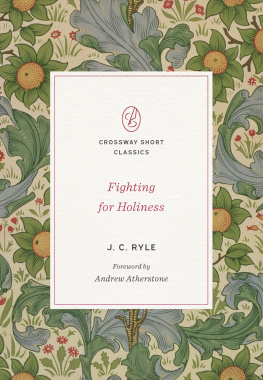
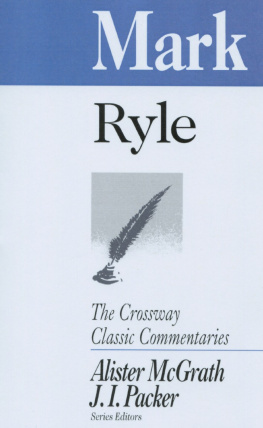
![J. C. Ryle - The Cross [Annotated, Updated]: Crucified with Christ, and Christ Alive in Me](/uploads/posts/book/150302/thumbs/j-c-ryle-the-cross-annotated-updated.jpg)

